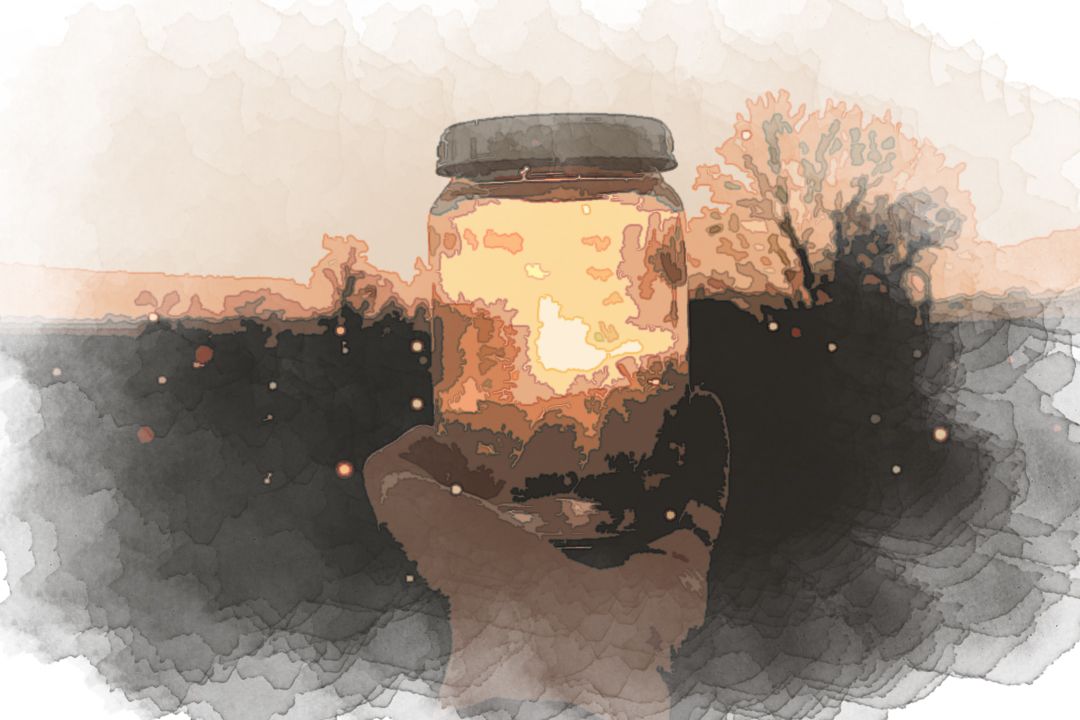Viral Containers of Ointment

The Anecdote to Imagination
Alexander, the village tinkerer, had an affinity for the eccentric; his latest endeavor was a jar that glowed like a cat’s eye in the dark, baffling the rational and tickling the fantastical. It sat plumply on a little knoll just outside his workshop—a knoll as unremarkable as a sneeze on a windy day, now crowned with what he called 'The Anecdote to Imagination.' Why a jar, you ask? Well, Alexander believed every eccentricity should be contained, just not very effectively.
No one recovers from the disease of being born, a deadly wound if there ever was one.
— Emil Cioran (1911-1995)
This jar was his wink at life's grand absurdity—a disease with only one cure, and he was selling tickets to the sideshow. It was his jest at existence, a glowing tribute to life’s inevitable punchline. As Alexander would muse, cradling a cup of lukewarm tea, “We’re all born with a terminal condition; it’s called 'being too serious.'”
“I placed a jar in Tennessee,
And round it was, upon a hill.”
So there it sat, this orb of defiance, in a place where the most exciting event was Mrs. Pennington’s cat stuck in a tree—again. It was Alexander’s way of giving the middle finger to monotony.
“It made the slovenly wilderness
Surround that hill.”
The jar did more than just brighten the landscape; it gave the locals something to scratch their heads about between beers and bingo. The wilderness, once a mere backdrop for teenage dalliances and illicit picnics, was now a theater, with the jar as its enigmatic lead.
“The wilderness rose up to it,
And sprawled around, no longer wild.”
Now, you might think a glowing jar would be the talk of the town, a mystical marvel. But no, the villagers weren’t so easily impressed. "It’s probably just Alexander’s newfangled lantern," they’d scoff, never mind the jar’s eerie luminescence that hummed with the promise of stories untold.
“The jar was round upon the ground
And tall and of a port in air.”
This wasn’t just any jar. It was a jar with aspirations, a jar that refused to be a mere vessel for granny’s preserves. It sat there with the audacity of a peacock in a henhouse, tall and smug.
“It took dominion everywhere.
The jar was gray and bare.”
It was the emperor of the hill, reigning over the landscape with a light that said, “Look at me, I’m important because I glow. Bet your Tupperware can’t do that.”
“It did not give of bird or bush,
Like nothing else in Tennessee.”
Alexander’s jar didn’t chirp, didn’t rustle. It just was. A gray, glowing beacon of... well, whatever you wanted it to be. A jar of dreams? A jar of light? A jar of “why-the-heck-is-this-here”? It inspired the kind of conversations that end with, “Well, what do you think it means?” followed by a shrug.
Alexander watched his little experiment in human curiosity from the sidelines, chuckling at the riddles he’d thrown into the mundane mix of village life. The jar, his glowing little paradox, was his anecdote to the malady of birth—a cosmic joke that reminded everyone to laugh, because, after all, what else could one do when faced with the absurdity of a luminous jar on a hill?
Anecdote of the Jar
by WALLACE STEVENS
I placed a jar in Tennessee,
And round it was, upon a hill.
It made the slovenly wilderness
Surround that hill.
The wilderness rose up to it,
And sprawled around, no longer wild.
The jar was round upon the ground
And tall and of a port in air.
It took dominion everywhere.
The jar was gray and bare.
It did not give of bird or bush,
Like nothing else in Tennessee.
Wallace Stevens, "Anecdote of a Jar" from Collected Poems. Copyright 1923, 1951, 1954 by Wallace Stevens. Used by permission of Alfred A. Knopf, an imprint of the Knopf Doubleday Publishing Group, a division of Random House LLC. All rights reserved. Source: The Collected Poems of Wallace Stevens (Alfred A. Knopf, 1990)

The planksip Writers' Cooperative is proud to sponsor an exciting article rewriting competition where you can win part of over $750,000 in available prize money.
Figures of Speech Collection Personified
Our editorial instructions for your contest submission are simple: incorporate the quotes and imagery from the above article into your submission.
What emerges is entirely up to you!
Winners receive $500 per winning entry multiplied by the article's featured quotes. Our largest prize is $8,000 for rewriting the following article;

At planksip, we believe in changing the way people engage—at least, that's the Idea (ἰδέα). By becoming a member of our thought-provoking community, you'll have the chance to win incredible prizes and access our extensive network of media outlets, which will amplify your voice as a thought leader. Your membership truly matters!


